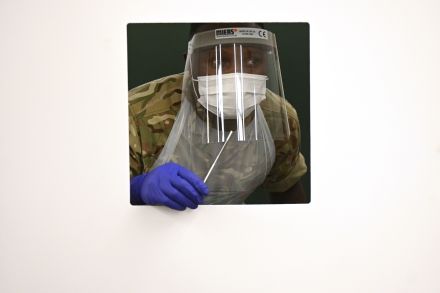ONS study finds infections slowed before lockdown
The weekly ONS infection survey suggests that the rise in prevalence of Covid-19 in England has levelled off. Not only that, it suggests that the rate of new infections has actually fallen. In the week to 31 October, the ONS estimates that 618,700 people had Covid-19 — about 1 in 90 of the population. That was up from 568,100 the week before — a 9 per cent increase. However, it amounts to a stark slowdown on previous weeks. At that rate, it would take eight weeks for the number of people with Covid-19 to double — a long way from the doubling rate of eight to ten days which was






















